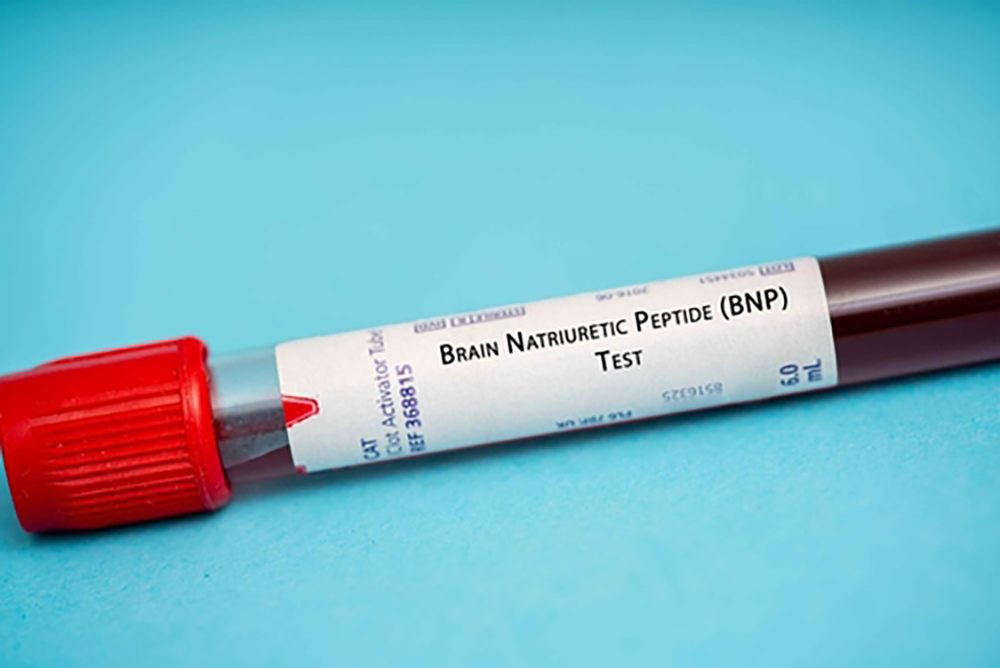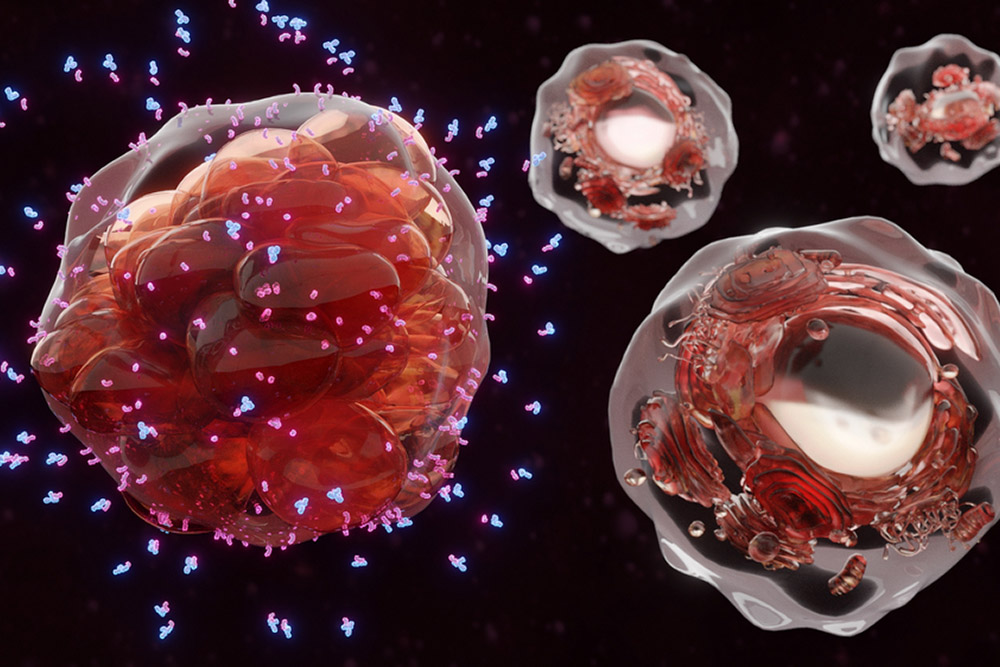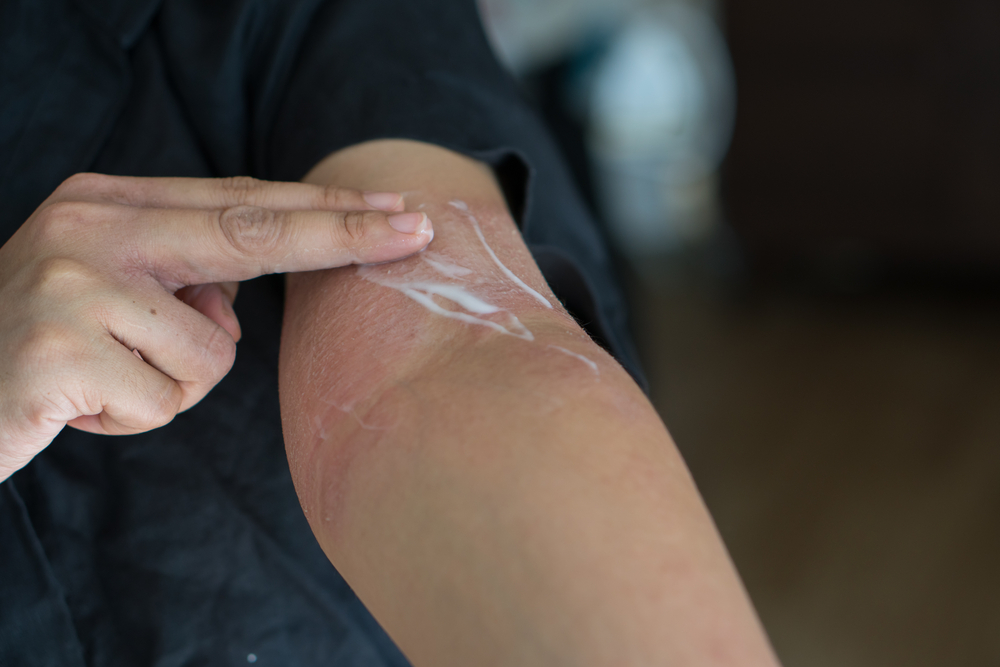Brain Natriuretic Peptide’s Role in Atopic Dermatitis Development

Researchers at North Carolina State University have made a significant discovery in understanding the role of a specific peptide in the development of atopic dermatitis (AD), commonly known as eczema. The research team focused on the brain natriuretic peptide (BNP), a short chain of amino acids found in higher levels in patients with AD. BNP is expressed in sensory neurons, which are crucial for conveying itch sensations to the brain. In a mouse model of AD, the absence of BNP resulted in a noticeable reduction in the typical skin thickening and irritation associated with AD, as well as decreased itching.
The Link Between Atopic Dermatitis and Food Allergy: Insights and Prevention Strategies

In a review, researchers explored the intricate relationship between atopic dermatitis (AD) and food allergy, shedding light on recent findings regarding their interconnectedness. AD is recognized as a significant risk factor for the development of food allergy, particularly in infants experiencing skin barrier disruption or persistent AD. However, indiscriminate testing for food triggers is cautioned against, as it may lead to false positives and unnecessary dietary restrictions. Instead, early skincare interventions and targeted treatment strategies, including the introduction of highly allergenic foods, show promise in mitigating the risk of food allergy in children with AD.
The Role of Gut Microbiota in Atopic Dermatitis

Researchers of recent studies have highlighted the vital role of gut microbiota in the onset of atopic dermatitis (AD). Research underscores the influence of maternal diet and health on fetal development, with microbes in the vaginal tract interacting with the fetus, impacting prenatal growth. Notably, the Stool Microbiome and Allergic ReacTion (SMART) study in China identified delivery mode, feeding method, and intrapartum antibiotic use as significant influencers on the early-life gut microbiome, preceding AD development. Dysbiosis in the gut, particularly in infancy, has been consistently linked to AD, with certain bacterial species associated with increased risk, while short-chain fatty acids show protective effects.
Study Connects Protein Deficiency to Atopic Dermatitis, Suggests Personalized Treatment Approaches

An Oregon State University study linked a protein deficiency to atopic dermatitis (AD). The research found that mice without COUP-TF interacting protein 2 (Ctip2) showed symptoms like dry skin and inflammation, along with increased levels of TSLP, a protein associated with AD. These findings suggest potential personalized treatments for AD through enhancing Ctip2 expression or adjusting lipid profiles.
Diagnostic Tool Streamlines Atopic Dermatitis Identification and Treatment

This diagnostic tool assists clinicians in identifying atopic dermatitis, providing resources in areas such as diagnostic criteria, associated conditions, and treatment. Key diagnostic indicators include pruritus, chronic eczema, and characteristic patterns. The tool also highlights the need to assess itch intensity, sleep disruption, daily impact, and psychological aspects during follow up, advising alternative diagnoses or specialist consultation if treatments are ineffective.
Educational Series Explores Cytokines in Atopic Dermatitis and Advances in Treatment

In part one of this two-part video-based educational series, Dr. Christopher Bunick provides an overview of the cytokines involved in atopic dermatitis (AD), focusing on type I and type II receptors. The series delves into skin itch in inflammatory skin disorders, particularly exploring cytokine roles in AD pathogenesis. It also discusses the unmet needs and recent innovations in topical itch treatments, along with strategies for enhancing patient care.
Study Sheds Light on Microbiome’s Impact in Atopic Dermatitis and Biotherapeutic Prospects

Research shows that the skin microbiome, crucial in interacting with the host, is disrupted in atopic dermatitis (AD) by an excess of S. aureus and less diversity. Early life emerges as a key period for shaping immune responses, indicating a potential window for AD microbiome interventions. Current studies on the microbial differences between healthy and AD skin have spurred clinical trials of biotherapeutics to address AD microbiome dysbiosis, indicating potential in microbiome-based treatments.
Study Finds Vitamin D in Pregnancy Lowers Eczema Risk in Babies and Improves Bone Density

A University of Southampton study indicates that vitamin D supplements during pregnancy may reduce eczema risk in children at 12 months, with the effect lessening at 24 and 48 months. Involving over 700 pregnant women, the study also found that these supplements can improve the child’s bone density at 4 years old, as part of the Maternal Vitamin D Osteoporosis Study.
Study Reveals Olive-Derived Fiber’s Positive Impact on Atopic Dermatitis and Gut Microbiota

A recent study explores the impact of olive-derived antioxidant dietary fiber (OADF) on atopic dermatitis (AD) and gut microbiota in mice. Mice fed with OADF showed significant improvement in AD symptoms, evidenced by changes in various immunological markers. OADF also positively altered the gut microbiota. These findings highlight OADF’s potential as a dietary therapeutic agent in managing AD through modulating the gut-skin axis and immune responses.

